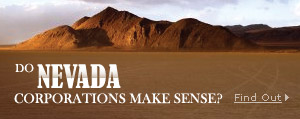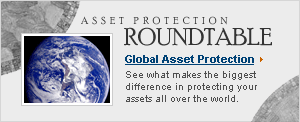No Secret Accounts
To begin, everyone should be aware that when a person fails to report his income, there is no U.S. statute of limitations on his tax return for that income. Should the IRS find out about a foreign bank account twenty years from now, it will be subject to penalties and interest as well as the taxes that should have been paid. (And it should be remembered that it only takes one audit out of a lifetime to get caught.)
Second, there is no dollar threshold for tax evasion. Currently the IRS is pursueing convictions for non reporting of US bank accounts.
CURRENT REPORTING REQUIRMENTS FOR US PERSONS - THIS IS CHANGING DAILY - PLEASE SPEAK TO A TAX ADVISOR BEFORE HEADING DOWN THE THIS ROAD
Form 8938 – A new reporting requirement for Foreign Financial Assets
New Form TD F 90-22.1 (FBAR) Regulations and filing option
Annual Passive Foreign Investment Company reporting now required
Frequent trips overseas without having an obvious business reason will tend to make IRS auditors suspicious. They will want to know the reason for the trips. They ask questions such as "Are you going to the same place each time?" "While there, who did you visit?" "What was discussed with them?" "When did you see them?" "Where and when was your meeting?" "Was the trip a profitable one?" and so on.
If the auditors have a reason sufficient enough to doubt the information they receive from a taxpayer, they can begin a lifestyle audit. Instead of looking at the taxpayer's returns and supporting records, they will look into every facet of his personal life for clues to unreported income. They will then try to reconstruct how much income he needs to support his particular lifestyle. If he hasn't reported that much income, then the auditors will dig even deeper.
Another major problem comes from being reported to the IRS by someone you know. There are those foolish people who can't resist telling someone about their exciting and ingenious schemes to hide income from the IRS. However, when they get divorced, or fire an employee who knows about what they did, or the business goes bankrupt and a former partner is angry over it, then inevitably someone will wind up informing the IRS. (Ironically, most IRS informants don't want the money the IRS offers to pay for information leading to collecting more taxes.)
Then there are the communications made with foreign bankers. Anyone who makes monthly phone calls to Zurich or travels there frequently in order to take care of such matters will surely tip off the IRS. One way to circumvent this is by using the internet with encrypted email messages. However, first the foreign banker would have to get acquainted with his client in order to do business by email, phone or other means. With the recent pressure put on by the U.S. and other major countries requiring that bankers "know their customers", it is becoming more difficult to establish a new banking relationship outside the U.S.
Finally, when making the decision to do business with someone who is willing to lie for them, to commit a felony with their own government, to sign false documents, etc., how can there be any certainty that this person will be honest and up front? To summarize, secret bank accounts seem easy to acquire in movies and in novels, but, in all actuality, there is no such thing as numbered Swiss accounts, secret hideaways or the tooth fairy.
All banks today have "know your client rules", meaning- know where the money is coming from. In the post 911 world the only secret banking you can hope for is a bit of bank privacy with a healthy dose of reporting.

GLOBAL BANKING

EDUCATION PRODUCTS

Asset Protecion Training
If you are looking for the most important concepts in Asset Protection, this is where to start! If you need to talk intelligently about protecting your net worth or you are a professional this online training program is for you!

Free Asset Protecion Course
Get our Free Online Asset Protection Video Course.
Learn how to protect yourself like the pros!


Asset Protection in a Nutshell
Clear, concise and straight forward, this e-Book will help you make sound decisions with your business and personal assets..

Protecting Assets - 70+ Video Lessons + 3 Ebooks
This e-course will give you straight forward asset protection advice you can implement now. One of the best asset protection courses available! Includes 70+ video lessons, 3 Ebooks, and 6 example legal documents!

Advanced Estate Planner
The key to a solid Asset Protection Plan is the Estate Plan. This downloadable estate organizer will help you keep track of important information about your assets and important legal documents all in one place.
















